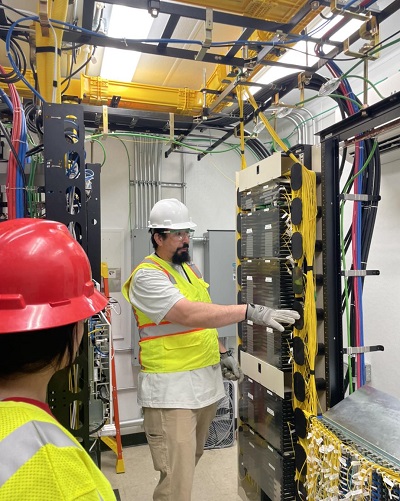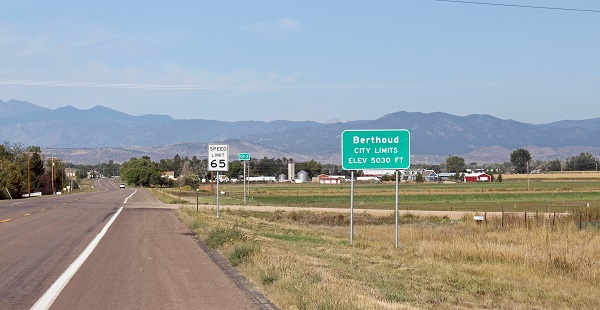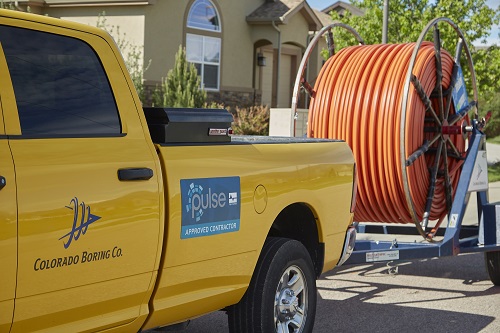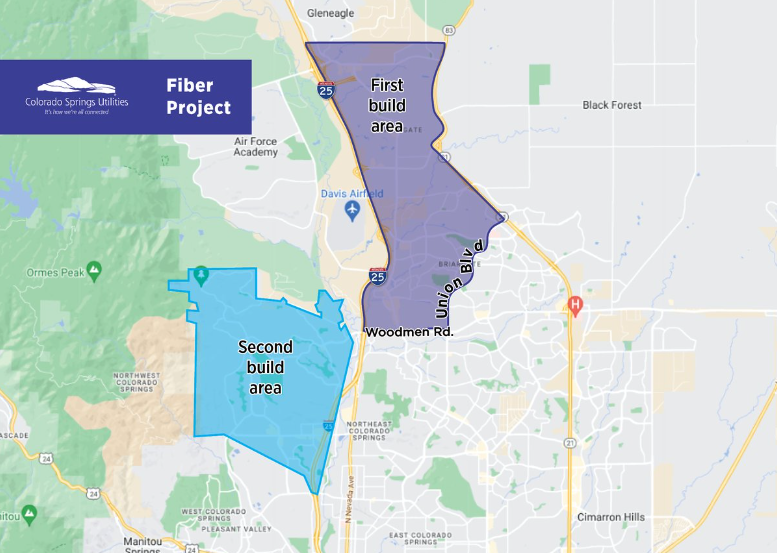
Fast, affordable Internet access for all.

From Colorado to Texas, municipal broadband providers continue to rack up industry accolades, not just for delivering fiber service–the gold standard of Internet connectivity–but for these networks’ ability to provide ubiquitous access across an entire community at affordable rates.
The National Association of Telecommunications Officers and Advisors (NATOA) recently announced that its Community Broadband Projects of the Year Awards for 2023 will go to the Connexion network in Fort Collins, Colorado and TeamPharr.net in Pharr, Texas.
Awarding Community-Wide Access and Affordability
The Fort Collins award is in recognition for the city having established “a municipal broadband utility created by and for the community to improve the life of all 80,000 residential and commercial properties of Fort Collins through better, more affordable Internet,” NATOA said in announcing the award.

But it wasn’t just because Fort Collins’ network provides city-wide access to fiber. The award also recognizes that “Connexion offers the fastest Internet speeds available at affordable prices (emphasis added) as well as competitive phone and TV services.”

This week on the show, Christopher is joined once again by Sean Gonsalves, Associate Director for Communications for the Community Broadband Networks initiative at the Institute for Local Self-Reliance. After a short stop to talk about the establishment of a new municipal network in Timnath, Colorado, Christopher and Sean get down to talking about the BEAD 5-Year Plans that states are filing with NTIA to get their hands on the first tranche of what will be an historic pot of federal funds for new broadband investment.
Some states, like Maine and Vermont, Sean shares, are doing lots right: setting high bars for new infrastructure, listening to communities about their needs, folding in digital equity initiatives, and thinking about how to reach the last households that BEAD will fall short of. Others, like Pennsylvania, seem written with the intent to waste public money and leaves tens of thousands of households stranded with poor or no service - in other words, exactly what the monopoly cable and telephone companies want.
This show is 37 minutes long and can be played on this page or via Apple Podcasts or the tool of your choice using this feed.
Transcript below.
We want your feedback and suggestions for the show-please e-mail us or leave a comment below.
Listen to other episodes here or view all episodes in our index. See other podcasts from the Institute for Local Self-Reliance here.
Thanks to Arne Huseby for the music. The song is Warm Duck Shuffle and is licensed under a Creative Commons Attribution (3.0) license.
Berthoud, Colorado, population 11,717, is the latest Colorado community to explore community broadband alternatives to expand public access to affordable fiber. Currently in the process of crafting a request for quote (RFQ), the city tells ILSR it hopes to make its final determination by November and have a preliminary plan in place by the end of the year.
Originally, Berthoud had planned on forming a coalition with three neighboring Colorado towns (Johnstown, Mead and Milliken) in a bid to expand access. That plan involved striking a memorandum of understanding (MOU) with Lincoln, Nebraska based Allo Communications, to deliver fiber to every address within three years.
But city leaders say the original plan wasn’t meant to be.
“The four communities did not strike a deal with Allo,” Berthoud Business Development Manager Walt Elish told ILSR. “We could not come to terms. Since then, we have looked at other options, including a town-owned network.”

As with many towns and counties, the high cost of a municipally owned broadband network has the city examining different options, including a potential public private partnership (PPP) with existing providers. PPPs are increasingly common but can have their downsides, including less municipal control over pricing or the potential trajectory of the finished network.
Loveland’s municipal broadband utility Pulse is a heartbeat away from expanding into a small neighboring Colorado town eager to offer its residents the same attractive, high-quality Internet access that can be found in Larimer County’s biggest cities.
Officials in Loveland and Timnath, Colorado (pop. 7,800) recently announced the ratification of an Inter-Governmental Agreement (IGA) that greenlight’s a plan to bring ubiquitous, affordable high-speed Internet access to yet another community in the Centennial State, as an increasing number of Colorado cities and towns embrace municipal broadband after years of frustration with the inadequate, high-priced service from the region’s monopoly incumbents.
"The selection of Pulse as our broadband service provider reflects a thorough process of assessment and consideration,” Timnath Town Planner Brian Williamson said in a press statement after the agreement was approved. “We are excited to work together, leveraging their expertise to ensure our residents have access to reliable, high-speed Internet that will contribute to the growth and prosperity of Timnath."
Keeping Up With The Loveland’s
This week Williamson spoke to ILSR about the project and why a town-wide fiber network is such valuable and vital infrastructure.

“Timnath is an interesting place. We are predominantly a residential community and we are growing quickly,” he said, adding that in a post-pandemic world of distance learning, remote work, and telehealth, an important part of the mix when people decide where to live and work is whether that community has reliable and affordable high-speed Internet access.

This week on the podcast, Christopher speaks with Brieana Reed-Harmel, Municipal Fiber Manager for the City of Loveland, located in Colorado’s Northern Front Range about an hour north of Denver. The city is home to over 80,000 residents as well as a municipal fiber broadband network called Pulse.
Chris and Brieana discuss Loveland’s population expansion over the past few years and Pulse’s resulting plans to extend beyond city limits into the “urban fringe,” which is more difficult to receive grant funding to serve. Brieana shares the ways in which the municipal network has leveraged its relationships, having partnered with its local school district to connect unserved areas during the pandemic, and currently in conversation with the county, which will help Loveland with the matching funds it needs for upcoming grant expansions. Brieana speaks to the challenges of building out the network through inflation and the pandemic. She stresses the importance of having a solid business model and great project management, as well as the scrappiness and ongoing investment needed to ensure a municipal network is sustainable and can bring residents quality connectivity at the best value.
This show is 25 minutes long and can be played on this page or via Apple Podcasts or the tool of your choice using this feed.
Transcript below.
We want your feedback and suggestions for the show-please e-mail us or leave a comment below.
Listen to other episodes here or view all episodes in our index. See other podcasts from the Institute for Local Self-Reliance here.
Thanks to Arne Huseby for the music. The song is Warm Duck Shuffle and is licensed under a Creative Commons Attribution (3.0) license.
Just as the BEAD program becomes a major driving force in the ongoing broadband-ification of America, hundreds of local network builders, operators, thought-leaders, and policy-makers will descend on Denver, Colorado for Mountain Connect 2023 early next month.
Themed this year as “Collaborate, Integrate, Innovate,” the agenda is packed with plenty of BEAD-centered panels but also offers a buffet of other focused forums that will cover emerging technologies, local network case studies, and larger community development concerns.
Spots for the conference, which will be held August 7-9 at the Denver Sheraton, are filling up fast. But, would-be attendees can still register here.
As with the previous eight annual Mountain Connect conferences, this year’s three-day conference in the Mile High City will bring together a veritable who’s-who of people working in the trenches of a national effort to bring high-speed Internet access to the tens of millions unserved and underserved households and businesses across the U.S.
Among the conference participants will be representatives from 15 state broadband offices, which accounts for more than $15 of the $42.5 billion in BEAD funds that will be allocated by states in the form of competitive state grants.
Colorado Springs, Colorado and its city-owned utility have begun construction on the second phase of a promising open access fiber optic network that should bring affordable fiber broadband to the city of half a million residents.
Construction of the network by Springs Utilities began in the first region in September 2022, shortly after the city-owned utility struck a 25-year lease agreement with Ting to be the network anchor tenant. Once completed, the network aims to deliver multi-gigabit service to roughly 200,000 homes, businesses, and city anchor institutions.
Local residents can pre-order service via the Ting website, but the company has yet to announce pricing or service tiers for its Colorado Springs deployment.
Brian Wortinger, Manager of fiber optics and telecommunications for Springs Utilities, told ILSR that the first phase of deployment passed 21,000 homes in the first fiber hut reason.
“Take rate is not a consideration for us, as we will lease 100 percent of the addresses to our anchor tenant, Ting Internet,” Wortinger said when asked about subscriber interest. “Their degree of success in obtaining customers has no impact on the revenues that we will generate through our dark fiber lease with them or any other tenant.”
The first phase of the network construction began in September of 2022, resulting in 225 new fiber route miles between I-25 and North Powers Boulevard. The second phase of the deployment began in June, and is focusing on the Rockrimmon neighborhood in Northwest Colorado Springs across I-25.

Overall, project managers say they are only slightly behind their original projected schedule.
Longmont, Colorado’s NextLight community fiber network isn’t just delivering fast and affordable fiber access to locals, it’s consistently winning awards nationwide.
The city-owned network has topped PC Magazine’s Readers’ Choice rankings, which asked readers to rate their satisfaction with their residential broadband providers. Nextlight was also rated as the top gaming ISP of 2023, and was rated the fastest ISP in the nation in 2018 and the second fastest ISP by the magazine last year.
The city was also rated the 17th best work-at-home city in another 2022 survey. This latest survey asked magazine readers to assess ISP satisfaction based on speed, reliability and value. NextLight excelled at all three.
“NextLight's near-perfect scores, including an astronomic 9.9 for overall satisfaction, are unprecedented in the history of PCMag's surveys of ISPs,” the magazine noted. “The company's lowest score is for setup, and yet that number is still higher than almost any other rating earned by another ISP in any category.”

Join us Wednesday, June 7th at 5pm ET for the latest episode of the Connect This! Show. Co-hosts Christopher Mitchell (ILSR) and Travis Carter (USI Fiber) will be joined by regular guests Kim McKinley (UTOPIA Fiber) and Doug Dawson (CCG Consulting) to talk about all the recent broadband news that's fit to print.
Email us at broadband@communitynets.org with feedback and ideas for the show.
Subscribe to the show using this feed or find it on the Connect This! page, and watch on LinkedIn, on YouTube Live, on Facebook live, or below.
Colorado state leaders have voted to eliminate long-criticized state barriers to municipal broadband networks. Community broadband advocates hope it will be a beacon for other states eager to bring more reliable and affordable high-speed Internet service to a market long dominated by monopoly providers.
The Colorado decision, made after years of citizen backlash to the counterproductive restrictions, is the latest inflection point in a retreat away from monopoly-backed state laws stifling creative efforts to bridge the digital divide.
On May 1, Colorado Governor Jared Polis signed Senate Bill 23-183. The new law formally eliminates an older 2005 law backed by regional telecom monopolies, which imposed cumbersome and onerous restrictions on Colorado towns and cities looking to build better, more affordable community-owned and operated broadband networks.
“SB23-183 removes the biggest obstacle to achieving the Governor’s goal to connect 99% of Colorado households by the end of 2027,” Colorado Broadband Office Executive Director Brandy Reitter said of the decision. “Each local government is in a unique position or different phase of connecting residents to high-speed internet, and this bill allows them to establish broadband plans that meet the needs of their communities.”
Colorado state leaders say the repeal puts them in a prime position to capitalize on numerous digital equity programs designed to address Colorado’s digital divide, as well as the more than $42 billion in broadband subsidies soon to be distributed courtesy of the recently-passed Infrastructure Investment and Jobs Act (IIJA).
“With large amounts of federal funding coming from the IIJA bill, we wanted communities to be ready to receive this money,” Colorado Representative Brianna Titone told ILSR.
Last year, Governor Polis signed an executive order formally setting a goal of connecting 99% of Colorado households by the end of 2027. Colorado state leaders have previously stated they expect their share of IIJA/BEAD funding to be between $400 and $700 million; money that can now be used more broadly on a diverse array of creative broadband solutions.